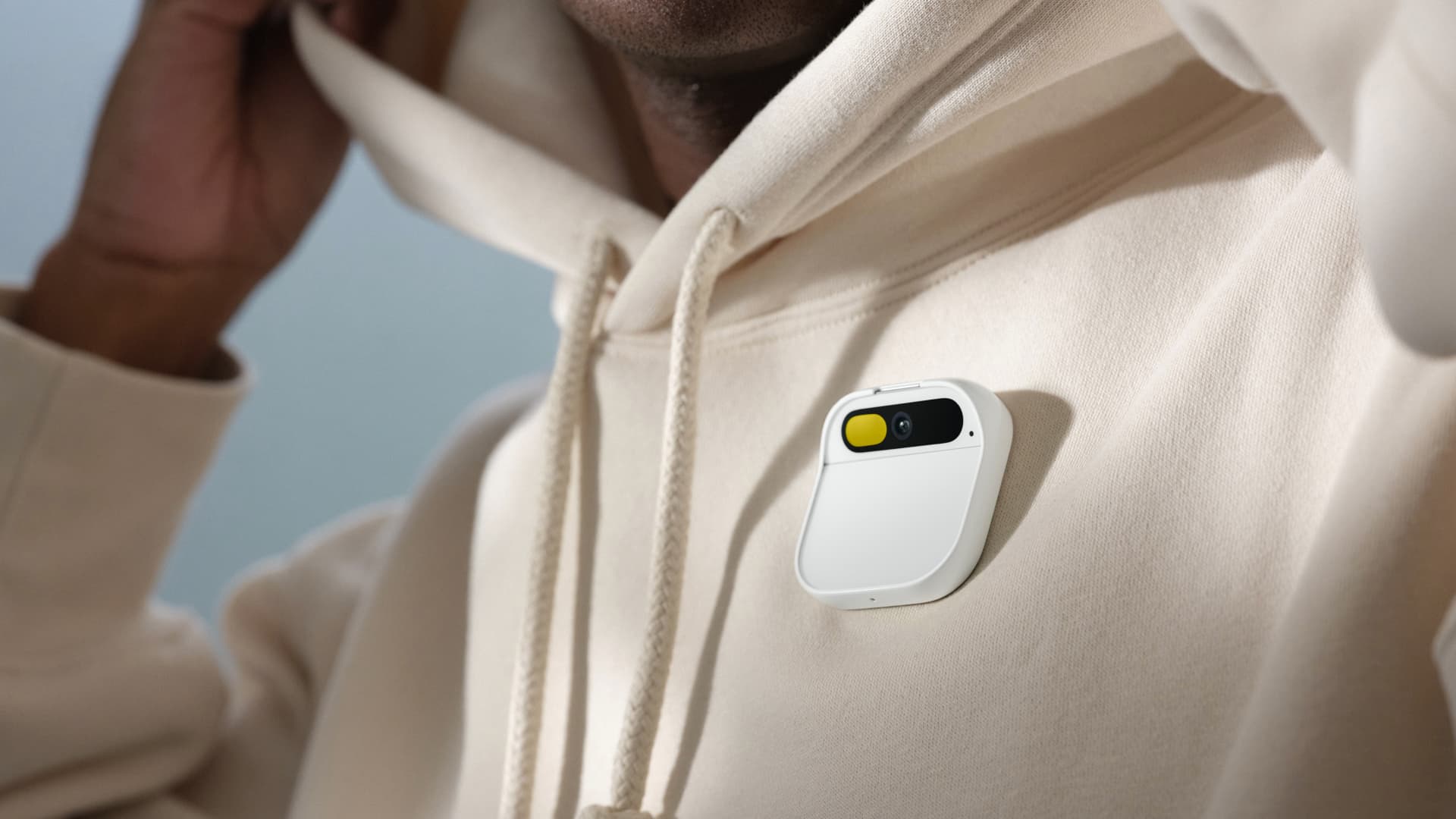Humane, a five-year-old artificial intelligence startup founded by former Apple designers Imran Chaudhri and Bethany Bongiorno, announced its first product on Thursday — a $699 pin you wear on your lapel.
The Humane AI Pin is designed to replace your smartphone, allowing the user to make calls, send texts and look up information through voice controls. It also has a laser display, turning your palm into a mini screen that can show the time, date or what’s nearby.
“There are no wake words so it’s not always listening or always recording,” Chaudhri said at the beginning of a 10-minute launch video on the company’s website. “In fact, it doesn’t do anything until you engage with it, and your engagement comes through your voice, touch, gesture or the laser ink display.”
In addition to the upfront cost of the device, customers will have to pay a $24 monthly data subscription to T-Mobile, the company said. Having a separate phone number means that, unlike smart watches, the pin isn’t tethered to a smartphone.
Humane raised eyebrows in March, when it announced a $100 million financing round from Microsoft, LG’s venture arm and Tiger Global before ever announcing a product. In total, the company has raised over $200 million, with contributions from OpenAI CEO Sam Altman and Salesforce CEO Marc Benioff.
Humane said it will begin taking orders for the AI Pin on Nov. 16.
In their video on Thursday, Chaudhri and Bongiorno demonstrated some of the device’s features and discussed the technology, which is powered by a Qualcomm chipset. (Qualcomm Ventures is also an investor.)
The AI Pin has a built-in speaker and camera, and a light flashes when those functions are turned on. Double-tapping the pin takes a photo or video, which can be viewed on Humane’s web app.
In addition to sending and receiving texts, the device can translate spoken conversations from Spanish to English and vice versa in real time, according to the demo.
Users can access AI services from the internet, rather than downloaded apps. Microsoft, Google, OpenAI, and other companies are contributing AI services, the company said. Customers can ask to “play songs from famous sci-fi films” or ask information, with answers provided by large language models. Accessing music requires a subscription to Tidal.
The device’s assistant can also summarize the user’s daily calendar, the messages received or health data such as the amount of “protein have I had today.”
WATCH: Brad Gerstner on AI
Image and article originally from www.cnbc.com. Read the original article here.

